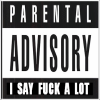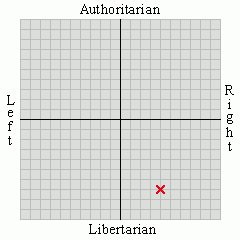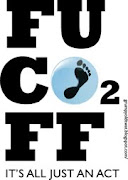 |
| More interesting if you're a baboon, I imagine |
Britain’s third-largest broadband provider has been promoting its new “HomeSafe” security product to its 4.1 million subscribers as a way of blocking pornography, viruses and other potentially harmful content.Far be it from me to tell me how to bring up your children, Cherith, and I'm sure you've already had the awkward conversation with your teens about which one had visited that site, but I'd say that parents should take this as an indication that the best filter system is the parents themselves.
Unlike the child safety products offered by other providers, it operates at the network level so parents do not need to install or maintain any software. The approach has attracted praise from MPs and campaigners seeking to restrict the availability of pornography on the web.
But for more than a week the system has failed to restrict access to Pornhub, which offers thousands of free explicit videos and is ranked as the third largest pornography provider on the web.
The failure was discovered by Cherith Hately, an IT expert and mother of three teenagers in south London, who tested the service last week. She found that on the Pornhub website the HomeSafe blocking page had been relegated to a small box normally reserved for advertising, leaving its adult content fully accessible.
“The ‘you have been blocked’ page has been diverted to an advertising slot within the Pornhub homepage thus opening access to it,” she said.
“The HomeSafe barrier has been knocked down, technically and literally. TalkTalk should inform all their HomeSafe customers that their children are still able to see pornography so that parents can supervise more.”
A spokesman for TalkTalk acknowledged the failure and said technicians were working on a fix. He was unable to say whether the HomeSafe system had been deliberately circumvented by pornographers.Perhaps not, but it occurs to me that if it had been to circumvent another filter that worked the same way it could affect TalkTalk too. In the Aussie context since what the nannies want is effectively ISP level filtering under government supervision all ISPs would have the same filter, and when a website manages something similar to what Pornhub's done to TalkTalk's HomeSafe this single point of failure would mean it won't affect just Telstra or iiNet or Optus customers - it'll be everyone. Hardly the end of the world because we'll be about where we are right now, but it does make the whole exercise seem a bit pointless.
“As the only network-level filter, TalkTalk’s HomeSafe is the most effective way of protecting children from content parents consider harmful,” the spokesman said.No, I repeat: parents are the most effective way of protecting children from harmful content. The filter can't unplug the computer, withhold their pocket money or threaten to stop paying the broadband bill so there's no service whatsoever. But it can create a false sense of security.
“While no technical solution alone is able to solve the issue of child internet safety or be a substitute for parental supervision, we firmly believe that HomeSafe is a step in the right direction.”Providing that false sense of security doesn't take over leading parents to assume that the filter is doing its job and little or no supervision is necessary, because when you concede that there's no substitute for parental supervision that would be a step in the wrong direction. Not that Britain's nannies are any more clued up about that than Australia's.
Under government pressure the rest of the big four internet providers – BT, Virgin Media and Sky – recently agreed to offer all new customers software to restrict which websites children are able to access, but stopped short of implementing network-level filters.You idiot. Of course it's impossible, we've just bloody seen that. This looks like it was circumvented at the other end without any effort on the part of the person sitting at home, and it's not like the person sitting at home doesn't have ways and means anyway. Look, I can't put it any better than an Australian blogger, Stilgherrian, put it nearly four years ago (my bold):
TalkTalk’s approach is meanwhile supported by the campaigners, and MPs including Claire Perry, a Conservative backbencher who is leading a parliamentary inquiry into online child protection. As well as network-level filters she wants broadband providers to switch them on by default.
“When I started campaigning to make access to internet pornography an 'opt-in', many industry experts said it was technologically impossible to provide a network-level filter,” Mrs Perry said.
Real-world experience in everything from spam filters to the record industry’s futile attempts to stop copyright violations always shows that filters only block casual users. Professionals, the desperate or the persistent will always get through.When elected nannies like Stephen Conroy here and Claire Perry in the UK wrap their heads around this and stop spunking taxpayers' money at things which at best will work until someone defeats them and at worst will never work at all they might start giving out useful advice. Advice along the lines of: the government can't stop your kids from seeing tits and arses and rooting baboons online...
However if a politician demands a filter, pretty soon a shiny-suited salesman will appear, ready to sell him a box with “filter” written on the front. It’ll work — well enough for the demo, anyway.
“Look, Minister! Nice Minister. Watch the screen. See? Filter off, bad website is visible. Filter on, bad website gone. Filter off. Child in danger. Filter on. Child happy and safe. Filter off. Voter afraid and angry. Filter on. Voter relaxed and comfortable. Cheque now please.”
... but if you get off your arse and look at what they're doing you can.


















